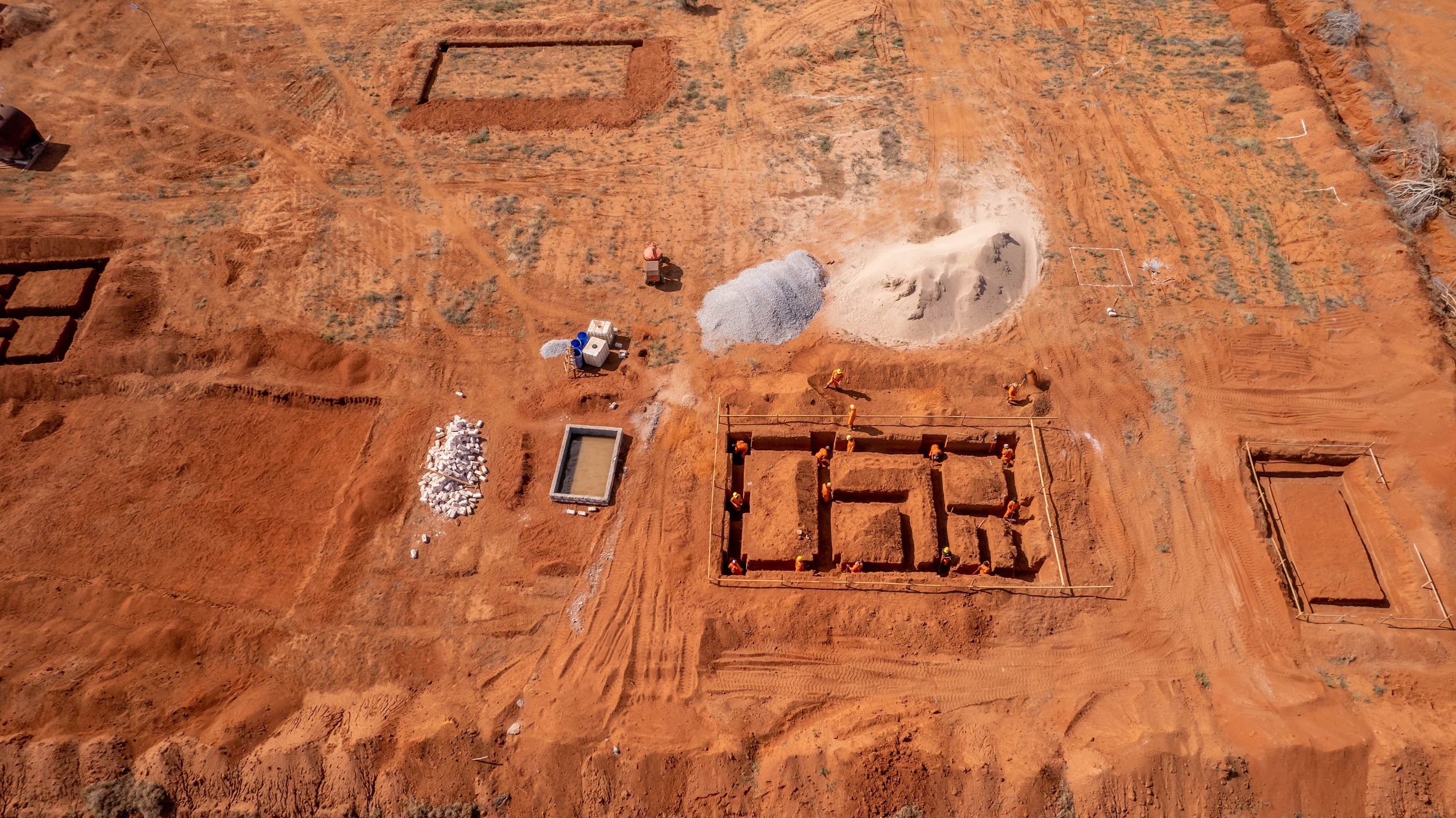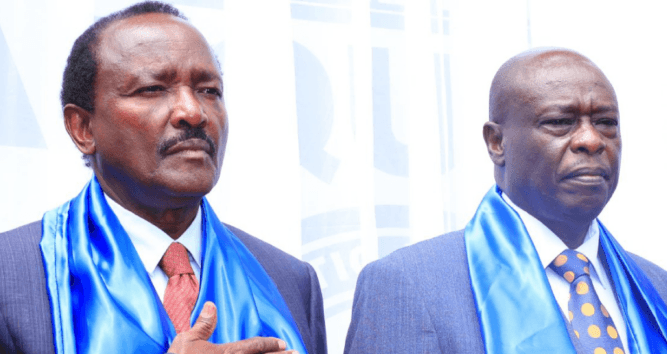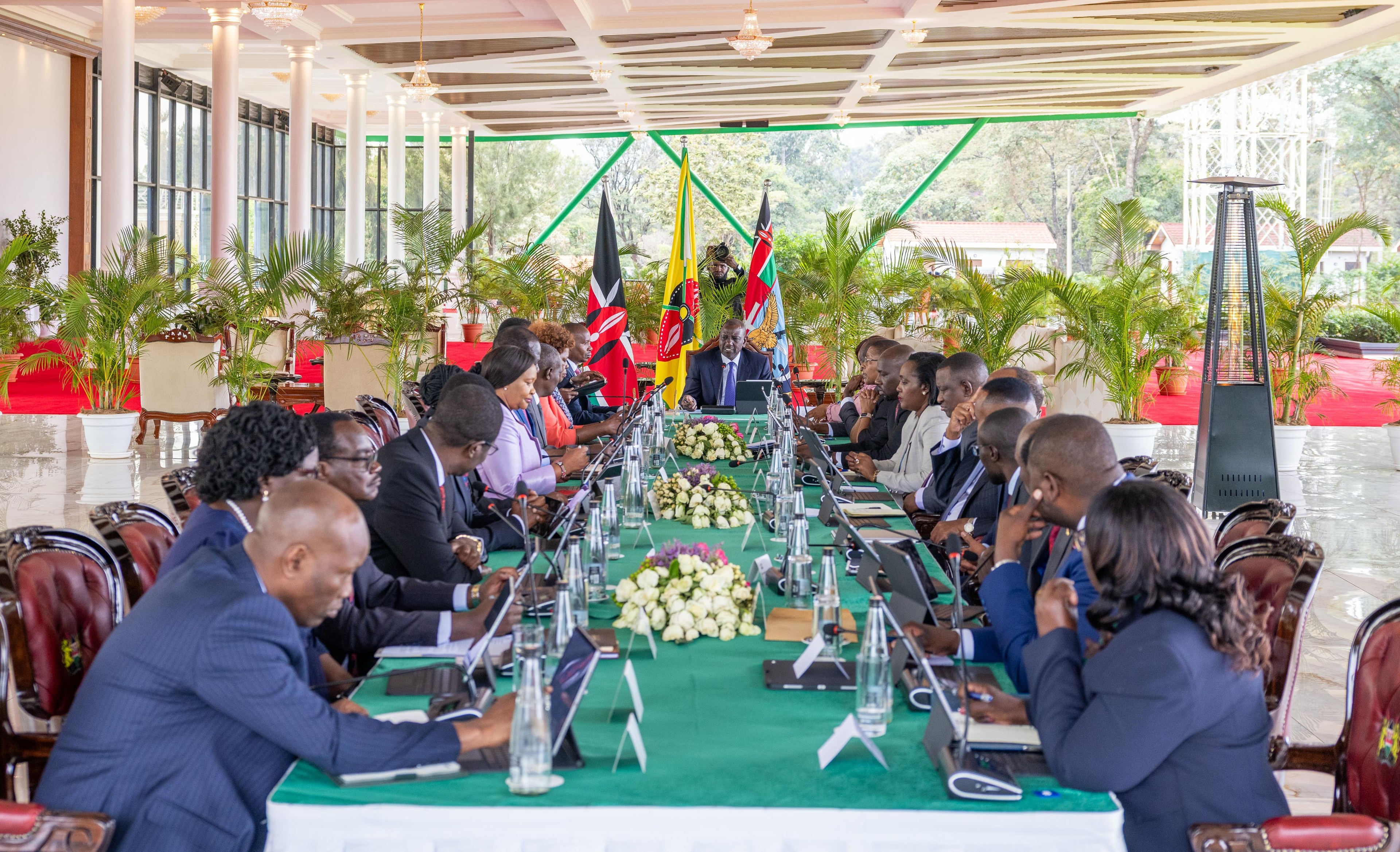
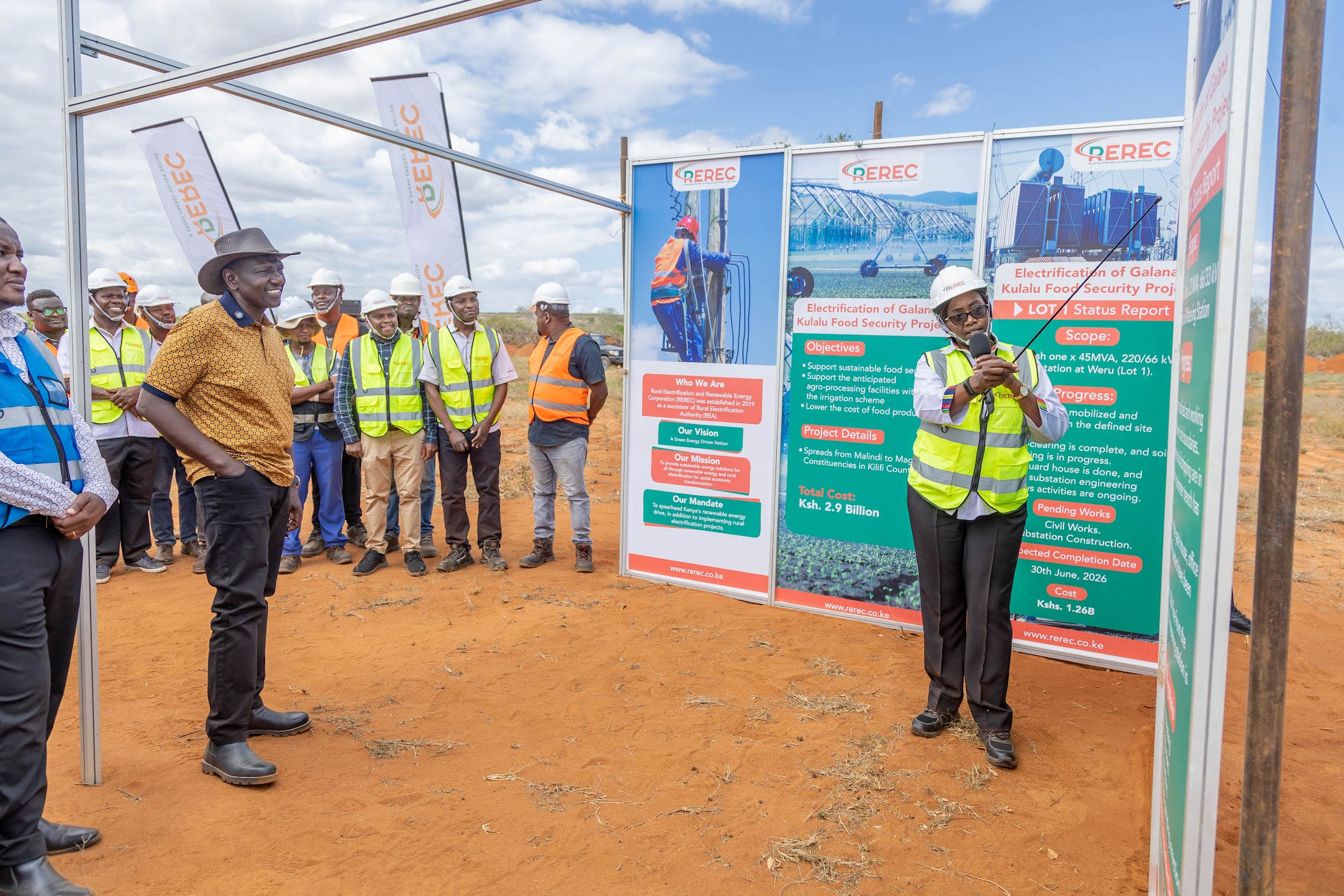
A mega electrification project, which includes constructing a
54 kilometre line and a substation at a total cost of Sh2.9 billion, is set to
reduce the cost of producing a kilo of maize in the Galana-Kulalu food security
project by about 42 per cent.
While touring the scheme on Friday, President William Ruto asked
REREC CEO Dr. Rose Mkalama to ensure that the electrification project is
completed at the stipulated time of June 2026, in order to ensure that the new
investors could work more efficiently and effectively.
According to the government, the project is designed to optimise
water management for enhanced agricultural productivity.
“The government is working with the private sector under a public-private partnership to operationalise the project and scale up food production. Besides producing food for Kenyans, the scheme will also produce animal feed to boost livestock farming in the county,” Ruto said.
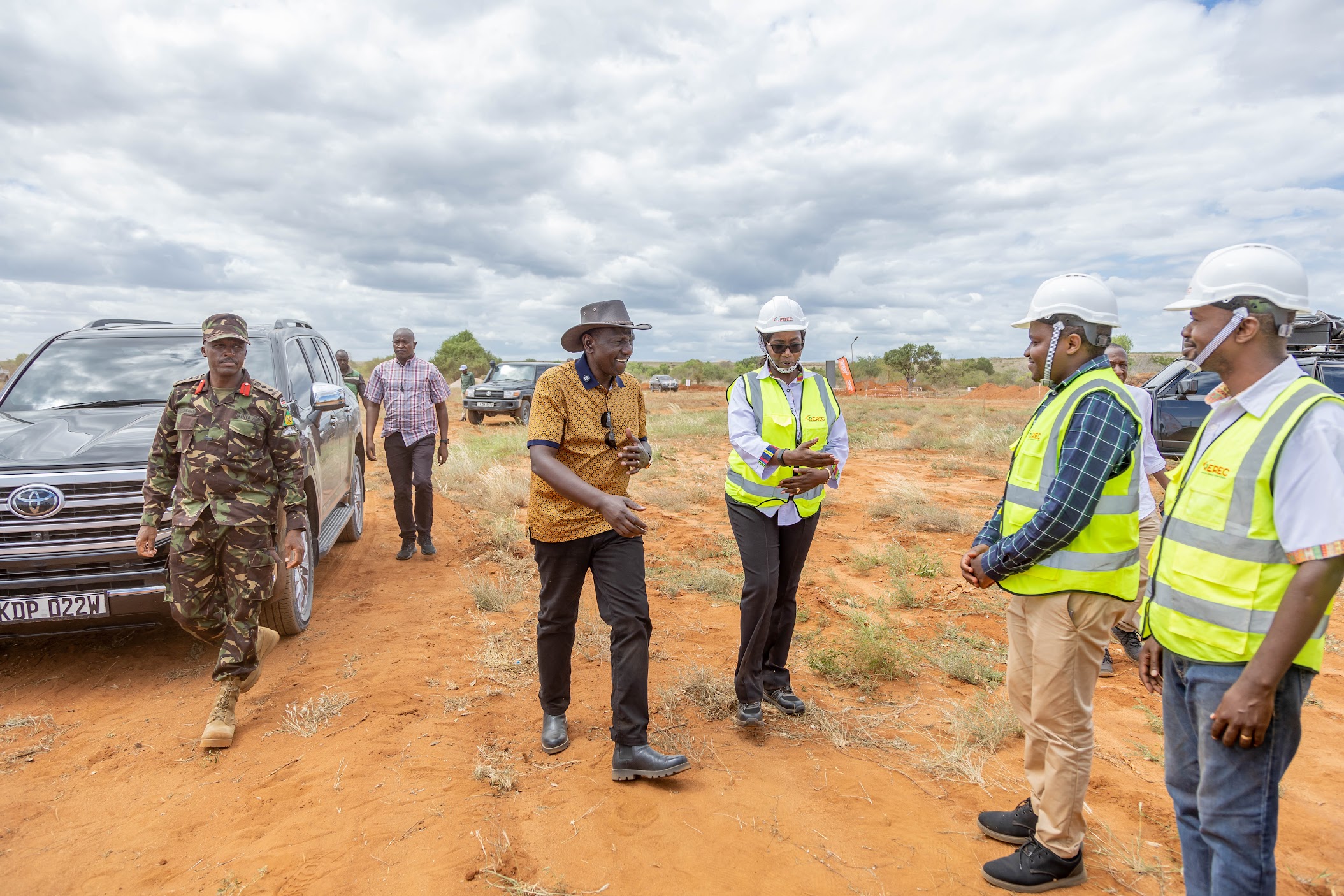
According to the national irrigation authority, the diesel-powered machines currently installed at the scheme cost an Investor about Sh24
to pump enough water to produce a kilo of maize.
It is, however, projected that when the construction of the
power substation, being implemented by the Rural Electrification and Renewable
Energy Corporation, is completed, it will reduce the cost of producing a kilo of
maize to Sh14 per kilo.
Ruto said that Kenya and the United Arab Emirates have
signed a memorandum of understanding that will see companies invest in food and
animal feed production.
The electrification project will support sustainable food security and facilitate agro-processing facilities within the irrigation scheme.
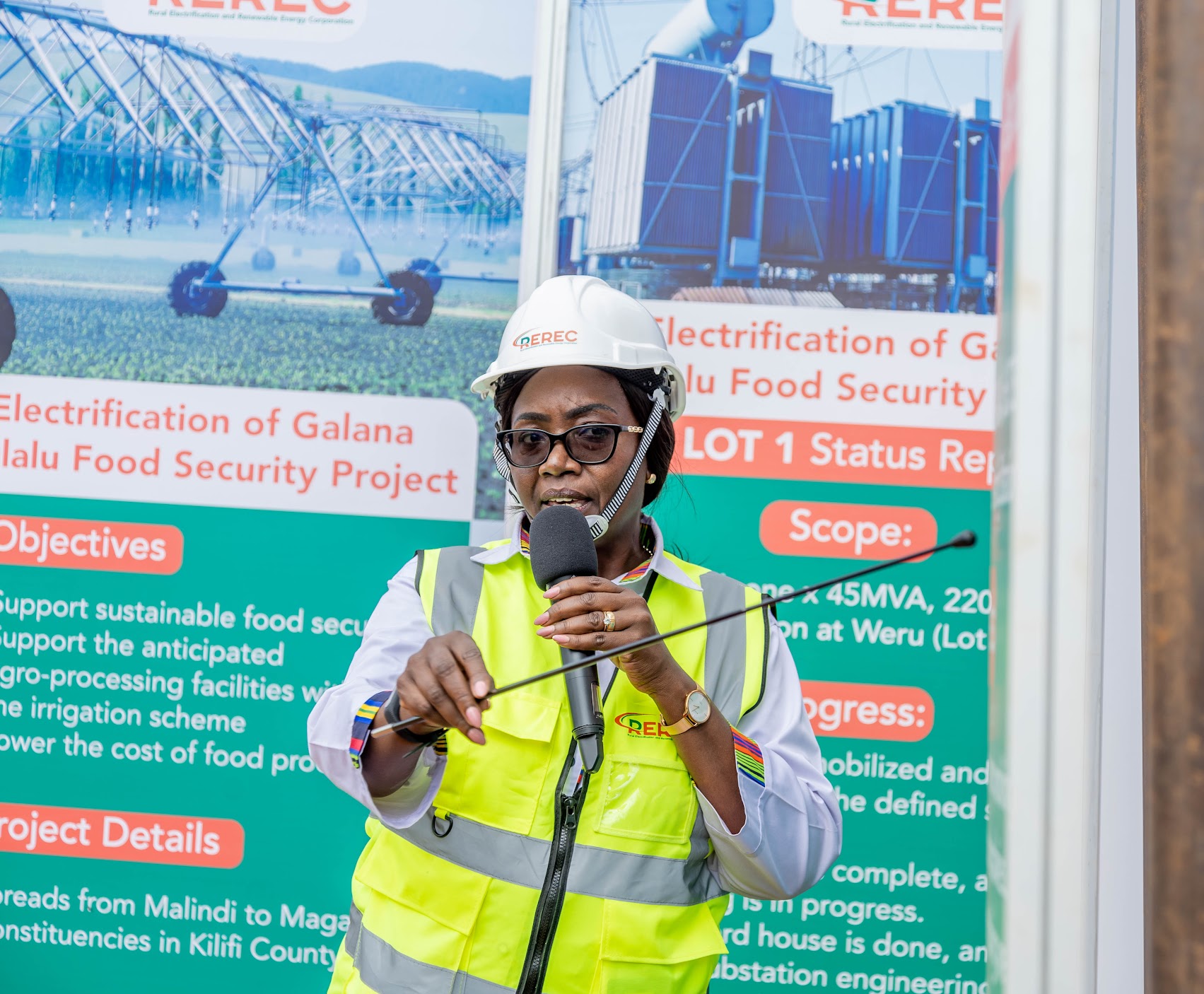
President Ruto has said that the scheme is ready for full operationalisation
following the completion of construction works on the siltation basin and canal
for the Galana-Kulalu food security project.
The Sh519.4 million infrastructure is now fully built and
undergoing final testing.
It comprises a 753-metre inlet canal, a 450 million-litre
reservoir, a 1,210-metre outlet canal, and a 20 million-litre off-take sump.
A total of 250,000 acres will be brought under irrigation. Of this, 20,000 acres are allocated to Selu Limited, 50,000 acres to Nyumbani Foundation and 180,000 acres to Al Dahra of the UAE.
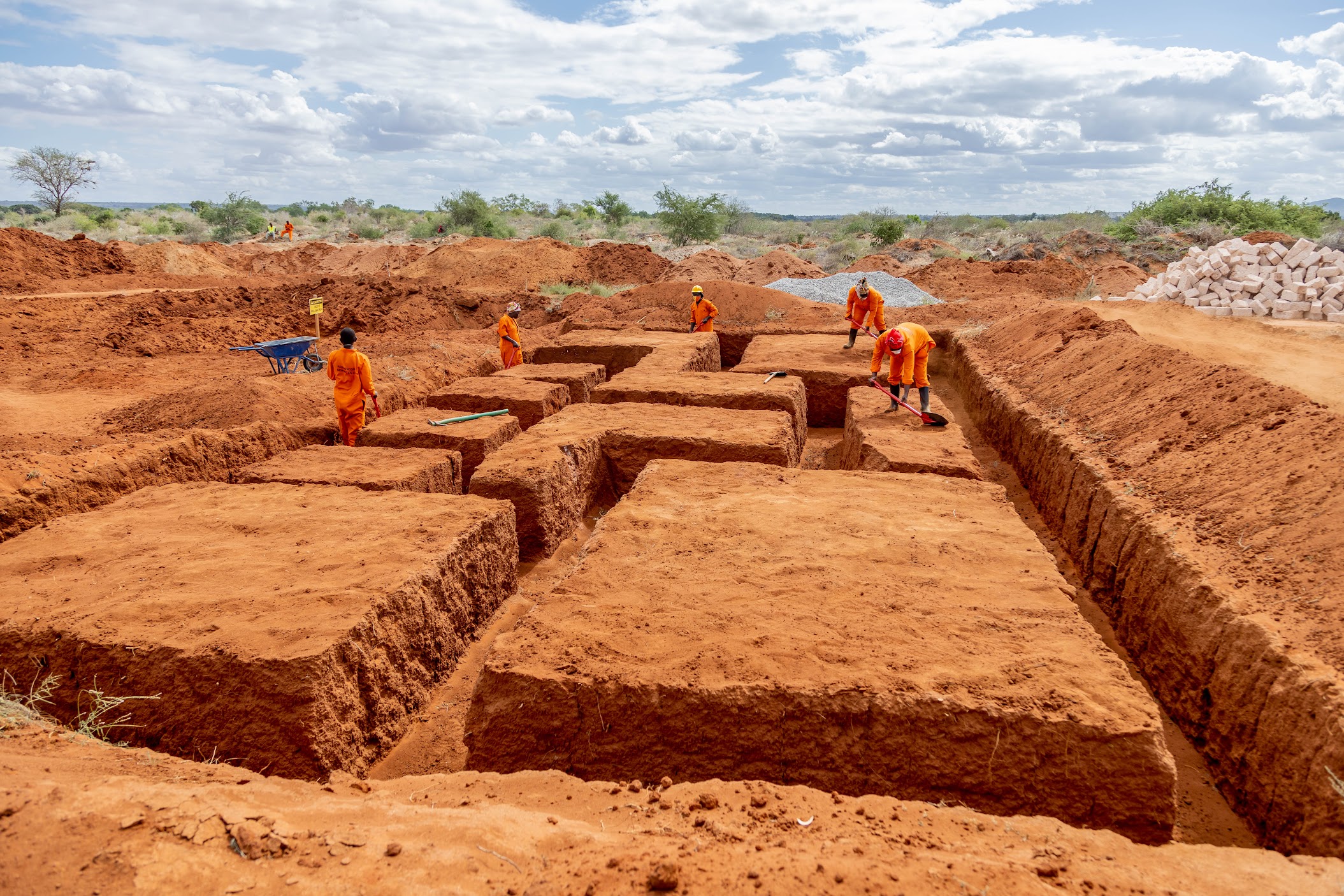
To ensure that water from River Galana is well utilized,
President Ruto said the dam will be built to guarantee adequate water supply to
the irrigation project.
The president also inspected the construction of the
Galana-Kulalu Bridge and access road, critical infrastructure that will
facilitate the efficient movement of produce from the farms to market.
It features a 200-metre bridge and access roads at a cost of Sh.1.5 billion.
